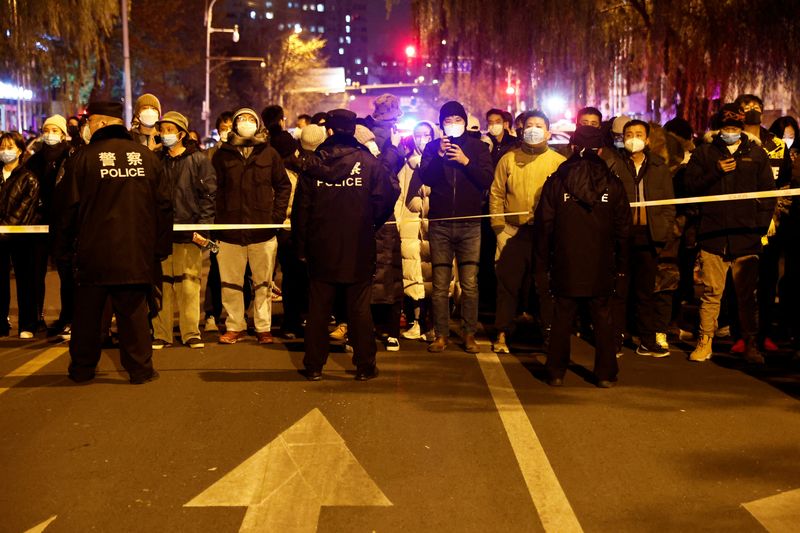Investors worry about COVID restrictions in China
2022.11.28 11:47
[ad_1]

Investors worry about COVID restrictions in China
Budrigannews.com – Foreign investors stated on Monday that rare protests sweeping across China regarding Beijing’s zero-COVID-19 policy may have sparked a new wave of political uncertainty but may also have sped up the reopening of the world’s second-largest economy.
Protesters staged an unprecedented act of civil disobedience since leader Xi Jinping assumed power a decade ago, which resulted in oil prices plummeting as much as 3 percent and China’s stock market suffering its worst day in a month.
“Protests are a concern in the short term,” Principal Global Investors’ chief strategist Seema Shah told Reuters, adding that the most recent events supported the notion that the winds were shifting. Principal Global Investors manages assets worth $500 billion.
“There is an important shift going on with the COVID reopening, even though we have been cautious.”
China’s markets have had a difficult year because of political risk aversion in the wake of Russia’s invasion of Ukraine in February and concerns about the country’s economic growth because of strict COVID restrictions and the effects of its problems in the property sector.
Data from the Institute of International Finance (IIF) indicate that since Russia invaded Ukraine in February, Chinese bond portfolios have experienced monthly outflows totaling $105.1 billion over nine months.The most money lost by Chinese stock portfolios since March was $7.6 billion in October alone.
DEMOGRAPHICS, on the other hand, had recently lifted markets off their lows in a year that had seen domestic blue chips and the Hong Kong index fall more than 20% year-to-date. Hopes that Beijing could ease some of its severe COVID restrictions had lifted markets.
Vincent Mortier, Amundi’s group chief investment officer and Europe’s largest asset manager, stated, “The latest events will reinforce the case for reopening.”
Given the impact on youth unemployment in big cities, the economic pain caused by COVID had begun to become a political issue in China, adding to pressure on Beijing, which was eager to “avoid some social unrest,” according to Mortier.
China has been under a lot of pressure because of demographics. In July, youth unemployment hit a record high of around 20%.
According to Sean Taylor, chief investment officer for Asia-Pacific at DWS Group, this would raise the risk premium if protests continued.
The 833 billion euro asset manager believes that once China leaves zero-COVID, stocks could rise by 15-20%, even though markets may be “quite challenging” until then.
According to equity research analyst for Asia Richard Tang at Julius Baer, offshore investors were more concerned about recent events than their onshore counterparts, which could have a positive impact on onshore equity markets.
Tang asserted, “We believe this divergence in view will drive an outperformance in A shares over H shares.”
Tang predicted that investors would soon turn their attention back to the Communist Party’s Central Economic Working Conference in December, which sets the economic agenda for the parliament session and could confirm a COVID “policy pivot” if there was no significant escalation in the situation.
Other people were more careful.Mark Haefele, global wealth management CIO at UBS in Zurich, stated that social discontent resulting from the zero-COVID policy increased risks associated with executing and implementing government policies.
In a note to clients, Haefele stated, “We do not expect economic or market headwinds in China to significantly abate over the coming months.”
We remain neutral on Chinese stocks as a result.Additionally, we see China’s sluggish recovery as a threat to global markets and the economy.”
[ad_2]








